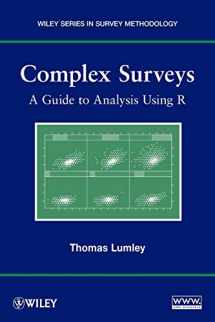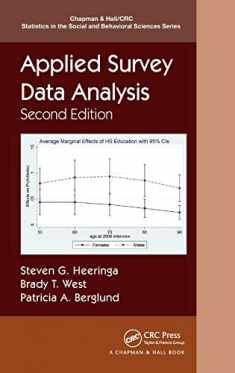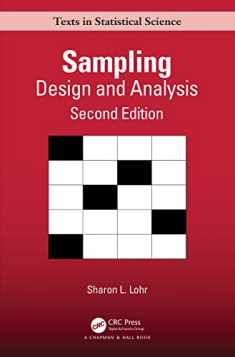
Complex Surveys: A Guide to Analysis Using R
Book details
Summary
Description
As survey analysis continues to serve as a core component of sociological research, researchers are increasingly relying upon data gathered from complex surveys to carry out traditional analyses. Complex Surveys is a practical guide to the analysis of this kind of data using R, the freely available and downloadable statistical programming language. As creator of the specific survey package for R, the author provides the ultimate presentation of how to successfully use the software for analyzing data from complex surveys while also utilizing the most current data from health and social sciences studies to demonstrate the application of survey research methods in these fields.
The book begins with coverage of basic tools and topics within survey analysis such as simple and stratified sampling, cluster sampling, linear regression, and categorical data regression. Subsequent chapters delve into more technical aspects of complex survey analysis, including post-stratification, two-phase sampling, missing data, and causal inference. Throughout the book, an emphasis is placed on graphics, regression modeling, and two-phase designs. In addition, the author supplies a unique discussion of epidemiological two-phase designs as well as probability-weighting for causal inference. All of the book's examples and figures are generated using R, and a related Web site provides the R code that allows readers to reproduce the presented content. Each chapter concludes with exercises that vary in level of complexity, and detailed appendices outline additional mathematical and computational descriptions to assist readers with comparing results from various software systems.
Complex Surveys is an excellent book for courses on sampling and complex surveys at the upper-undergraduate and graduate levels. It is also a practical reference guide for applied statisticians and practitioners in the social and health sciences who use statistics in their everyday work.


We would LOVE it if you could help us and other readers by reviewing the book
Book review





